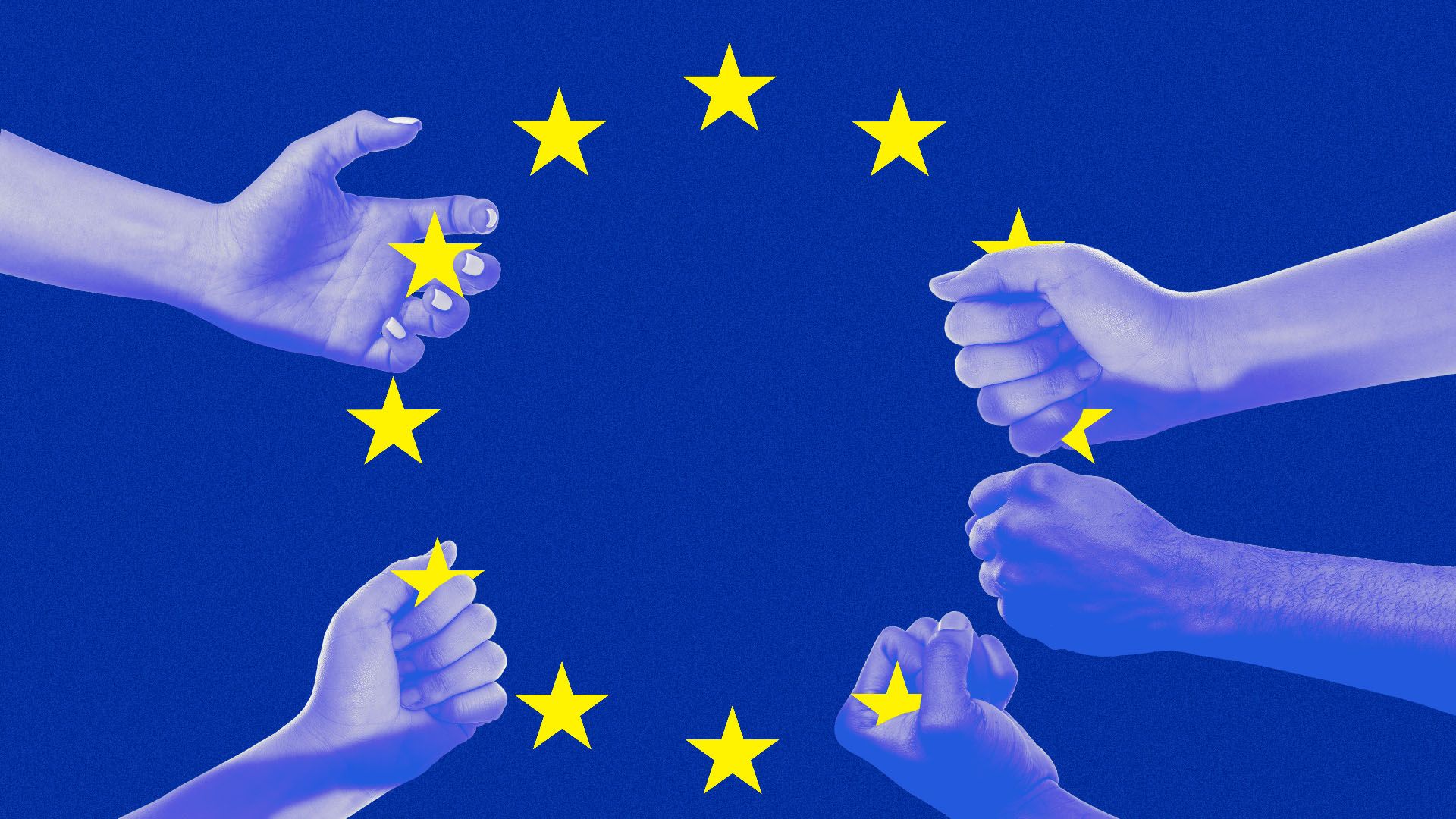The far right eyes the European Parliament
Add Axios as your preferred source to
see more of our stories on Google.

Illustration: Sarah Grillo/Axios
A long-awaited test for Europe’s far right begins today with European parliamentary elections, which will send a medley of nationalists to Brussels and a message to mainstream parties all over the continent.
Why it matters: Emmanuel Macron, France’s fiercely pro-EU president, has portrayed it as a referendum on the European project. His nationalist foes agree — but their ambition is to weaken the EU from the inside.
- All 28 European Union members will elect representatives to the EU's 751-seat parliament between today and Sunday.
The far-right is growing in strength, but it’s hardly a unified force. Things tend to get messy when nationalists, campaigning on “sovereignty,” attempt to join hands across borders.
- Immigration, for example, is the signature issue for both Matteo Salvini, the Italian leader of a new far-right bloc, and Hungary’s authoritarian prime minister, Viktor Orbán.
- Salvini, Italy's interior minister, wants the rest of the EU to share the migrant burden that has fallen heavily on Italy. He'll never get Orbán, who has vowed to keep immigrants out, to sign up to that.
- Salvini has cobbled together a far-right coalition that’s expected to take about 10% of the new parliament. But it doesn’t include Orbán, Poland’s populist ruling party, or the Brexit Party — which is taking British politics by storm.
The big mainstream blocs — the center-left Social Democrats and the center-right European People’s Party — are likely to lose their long-held combined majority. That means a shift in Brussels’ balance of power.
- Macron hoped to gather enough seats and sway to position his party as the “kingmaker," says Celia Belin of the Brookings Institution.
- He’s short on allies, though, and now in a desperate fight simply to top Marine Le Pen’s far-right National Rally. Losing to Le Pen would be a major setback for his ambitions, both for the EU and for France.
What to watch: Turnout is often low in these elections, but the consequences can be significant.
- Markus Schomer, Chief Economist at PineBridge Investments, tells Axios’ Dion Rabouin the 2014 vote was the “catalyst” for Brexit because the U.K. Independence Party triumphed over Britain's Conservative government, which in turn offered a referendum on EU membership.
- “My worry is something could happen in these elections that lights the fuse for another Brexit-like event a few years from now," he says.
The big picture: Since 2014, Brussels has largely remained insulated from the political upheaval around the continent, says Erik Brattberg of the Carnegie Endowment. Not any longer.
Go deeper: Populism smothers Europe's mainstream conservatives
